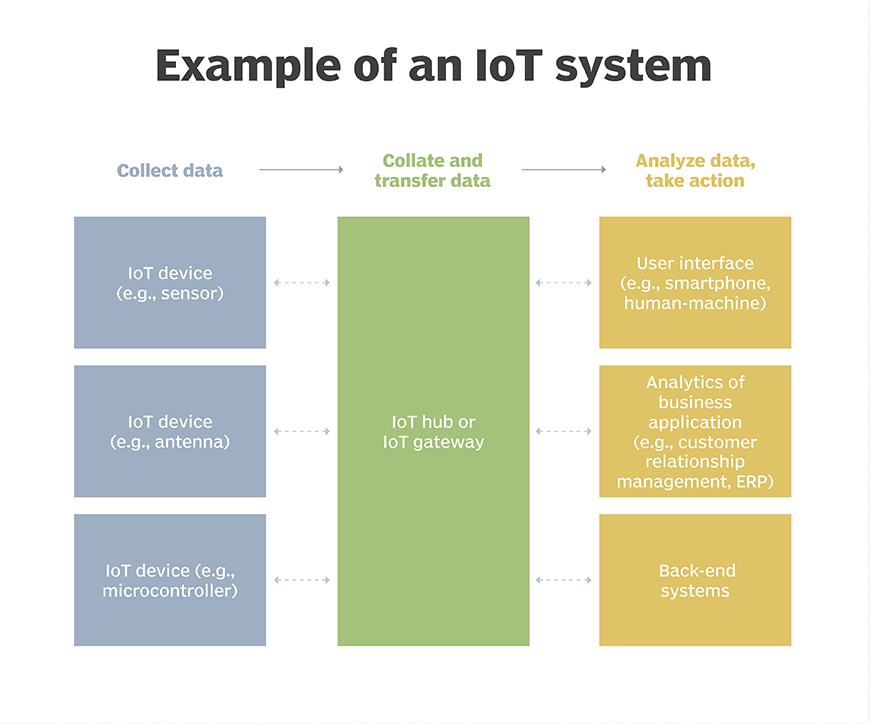The internet of things, or IoT, is a system of interrelated computing devices, mechanical and digital machines, objects, animals, or people that are provided with unique identifiers (UIDs) and the ability to transfer data over a network without requiring human-to-human or human-to-computer interaction.
Benefits of IoT
 The internet of things offers many benefits to organizations, enabling them to:
The internet of things offers many benefits to organizations, enabling them to:
- Monitor their overall business processes;
- Improve the customer experience;
- Save time and money;
- Enhance employee productivity;
- Integrate and adapt business models;
- Make better business decisions; and
- Generate more revenue.
IoT encourages companies to rethink the ways they approach their businesses, industries, and markets and gives them the tools to improve their business strategies.
Pros and Cons of IoT
Some of the advantages of IoT include:
- Ability to access information from anywhere at any time on any device;
- Improved communication between connected electronic devices;
- Transferring data packets over a connected network saves time and money;
- Automating tasks helps improve the quality of a business’ services and reduces the need for human intervention.
Some disadvantages of IoT include:
- As the number of connected devices increases and more information is shared between devices, the potential that a hacker could steal confidential information also increases;
- Enterprises may eventually have to deal with massive numbers — maybe even millions — of IoT devices and collecting and managing the data from all those devices will be challenging.
- If there’s a bug in the system, it’s likely that every connected device will become corrupted;
- Since there’s no international standard of compatibility for IoT, it’s difficult for devices from different manufacturers to communicate with each other.


